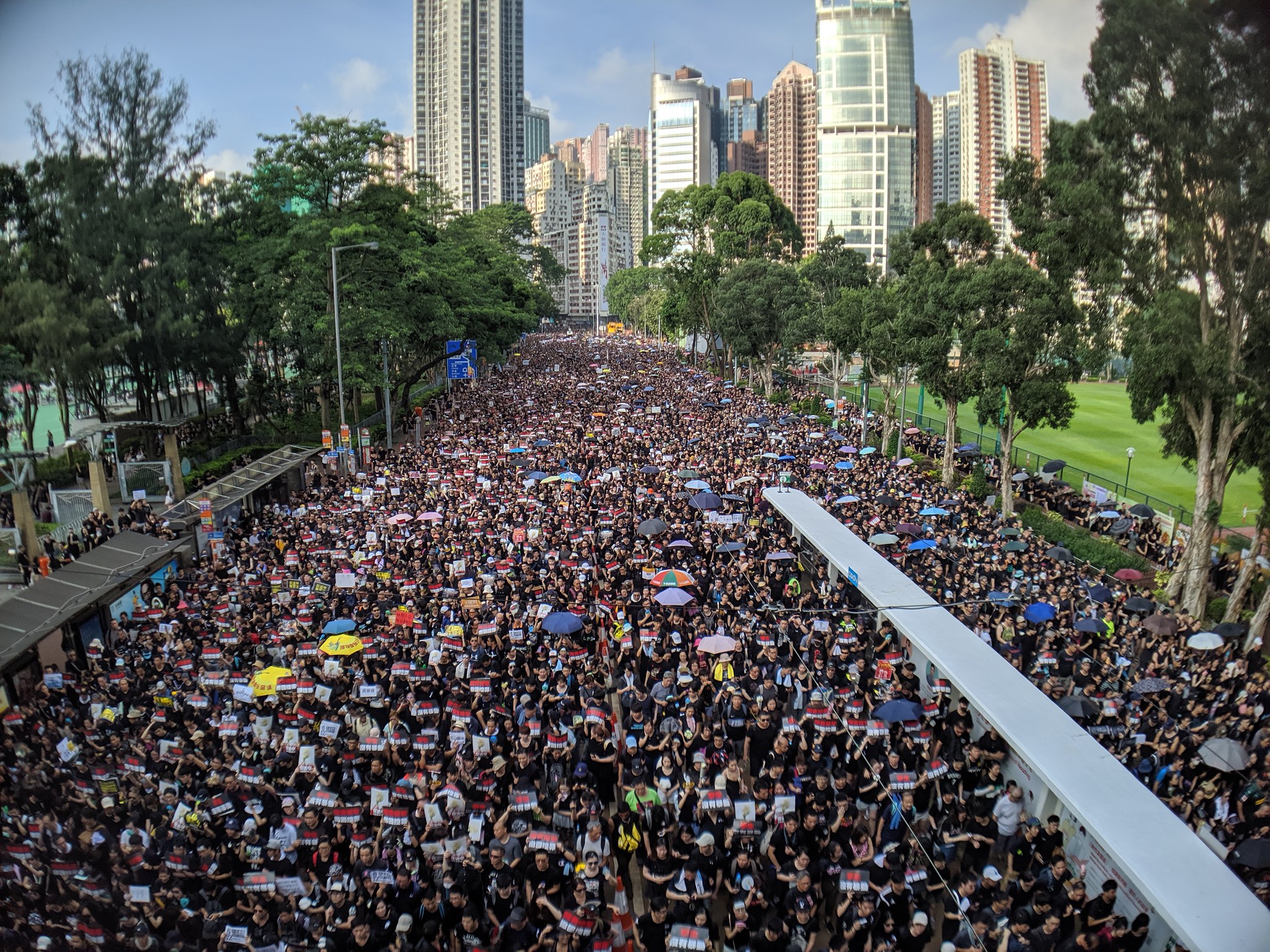News
Hong Kong protesters to continue after bill declared ‘dead’

FILE: Organisers estimated two million protesters, dressed in black, took to the streets following Carrie Lam’s announcement of suspending the bill in 16 June (Photo: Studio Incendo/Flickr, CC BY 2.0)
Hong Kong protest leaders opposed to the administration of Chief Executive Carrie Lam said Tuesday that they will continue their demonstrations, even after Lam declared the effort to amend a highly contentious extradition bill “dead.”
Protesters are persisting in their demands for the bill to be formally withdrawn and an investigation opened into heavy-handed tactics used by police against demonstrators. Hundreds of thousands have joined the monthlong protests, expressing growing concerns about the steady erosion of civil rights in the semi-autonomous Chinese territory.
“We cannot find the word ‘dead’ in any of the laws in Hong Kong or in any legal proceedings in the Legislative Council,” protest leaders Jimmy Sham and Bonnie Leung said in statements in English and Cantonese.
“So how can the government tell us that we should preserve our rule of law, when (Lam) herself does not use the principle of the rule of law,” the two said.
The protest leaders also said Lam was being hypocritical in claiming to have met demonstrators’ demands without actually speaking to them directly.
“Instead, she should really stand out and talk to the young protesters,” Leung said. “The young protesters have been out in the street outside her house, outside government headquarters, for weeks, roaring to be heard.”
Details about future protest actions will be announced at a later time, Leung said.
Lam acknowledged at a news conference earlier Tuesday that there were “lingering doubts about the government’s sincerity or worries about whether it would seek to bring the legislation back for a vote.” But she said: “I reiterate here, there is no such plan.
The bill is dead.”
The protests against the proposed extradition legislation have given voice to fears that Hong Kong is losing the freedoms guaranteed to it when the former British colony was returned to China in 1997.
The legislation would allow criminal suspects to be extradited to mainland China. Critics fear suspects would face unfair and politicized trials, and that opponents of China’s ruling Communist Party would be targeted.
In the most recent protest on Sunday, tens of thousands of people, chanting “Free Hong Kong” and some carrying British colonial-era flags, marched toward a high-speed railway station that connects Hong Kong to the Chinese mainland. They said they wanted to carry their protest message to those on the mainland, where state-run media have not covered the protests widely but have focused instead on clashes with police and property damage.
On July 1, the 22nd anniversary of Hong Kong’s handover from Britain back to China, a peaceful march drew hundreds of thousands of people but was overshadowed by an assault on the territory’s legislative building. A few hundred demonstrators shattered thick glass panels to enter the building and wreaked havoc for three hours, spray-painting slogans on the chamber walls, overturning furniture and damaging electronic voting and fire prevention systems.
Protesters are demanding an independent investigation into alleged police abuse of force against demonstrators on June 12, when officers used tear gas and rubber bullets to disperse crowds blocking major streets.
Lam said Tuesday that investigations would take place under the Department of Justice “in accordance with the evidence, the law and also the prosecution code.”
———
Bodeen reported from Beijing.





















